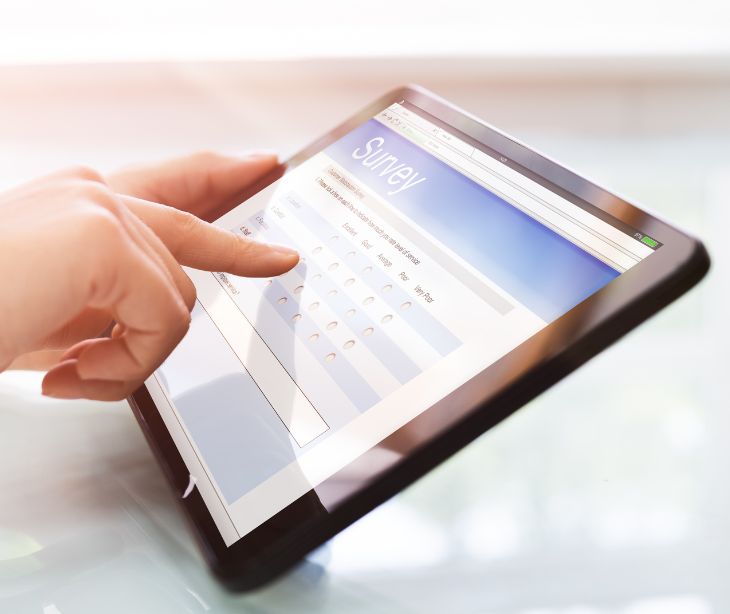2 min read
How personalized emails can help patients with anxiety disorders
Caitlin Anthoney March 25, 2024

Personalized emails can be used to deliver resources and coping strategies directly to patients to help manage symptoms of anxiety and help improve their mental well-being.
The Anxiety & Depression Association of America states that: “Anxiety Disorders are the most common mental illness in the U.S., affecting 40 million adults (19.1% of the population) age 18 and older.”
In response, healthcare providers can utilize personalized emails to offer tailored support. Through this approach, providers can streamline the delivery of psychoeducational materials by targeting specific patient needs. This could help patients access valuable resources and strategies that could help manage their symptoms and improve their overall mental well-being.
Read also: How psychoeducational text messaging improves patient outcomes
Why automated emails are effective
A randomized controlled trial states, “Automated emails may be particularly suitable as a medium for providing reminders given the extremely low cost of emails and their ubiquity.” When used carefully, automated emails can provide the necessary support for patients with anxiety.
For example, automated emails can be scheduled to send gentle reminders about upcoming appointments or medication refills, helping patients stay on track with their treatment plans. Additionally, automated emails can offer reassurance and encouragement.
The trial then proves that "participants with elevated symptoms who received automated emails reported significantly less symptoms of anxiety." This shows the potential efficacy of email interventions in managing anxiety symptoms.
Furthermore, the trial suggests "that maximizing the motivational efficacy or tailoring of automated emails might produce even stronger effects." Ultimately, this trial demonstrates that integrating personalized automated emails into patient care can significantly support patients and enhance outcomes.
How personalized emails can improve patient outcomes
Personalized email support in anxiety disorders among farmers showed “fewer symptoms of anxiety at the 8-week follow-up,” and participants found “the email support helpful (86%).” This highlights the potential benefits of using technology to provide mental health support to rural farmers. More specifically, it suggests that personalized email support can be an effective and well-received intervention for individuals struggling with anxiety disorders.
Ultimately, emails can be personalized to address specific concerns and provide tailored coping strategies. It is a convenient and accessible form of support for those who face barriers to traditional mental health services.
How personalized emails can offer support to individuals with anxiety disorders
Education and awareness
Personalized emails can deliver educational materials, articles, and resources on understanding anxiety disorders. This content can cover topics like coping mechanisms, relaxation techniques, and information about available treatments. Additionally, personalized emails can provide links to online support groups and mental health professionals who specialize in anxiety disorders. These resources can offer further guidance and assistance to individuals seeking help for their condition.
Encouragement and motivation
Personalized emails can include personalized goals and milestones tailored to the individual's journey in managing anxiety. Regular reminders and encouragement can help reinforce progress and maintain motivation. Providers can regularly check in with the individual to assess their progress and make any necessary adjustments to their personalized plan.
Providing access to support resources
Personalized emails can facilitate connections between patients and local or online support groups. For example, a patient with social anxiety might receive tailored emails inviting them to join an online support community. These emails could offer testimonials and encouragement, helping the patient find valuable support networks.
Providers can also offer access to teletherapy services through personalized emails. For example, sending patients information about the benefits of teletherapy, scheduling details, and instructions on how to get started.
Go deeper: Why personalized healthcare emails are better
FAQs
Do personalized emails replace traditional forms of therapy for anxiety disorders?
Personalized emails complement traditional forms of therapy for anxiety disorders but do not replace them. They serve as additional support and communication between healthcare providers and patients.
What are some limitations to the effectiveness of personalized emails in supporting patients with anxiety disorders?
While personalized emails can be effective in supporting patients with anxiety disorders, they may not be suitable for everyone. Some patients may prefer other forms of communication or may not have access to email, limiting the reach of this support method.
Are personalized emails compliant with patient privacy regulations?
Yes, healthcare providers must ensure that personalized emails comply with HIPAA regulations. This includes obtaining authorization from patients before sending personalized emails and safeguarding the confidentiality of protected health information.
Subscribe to Paubox Weekly
Every Friday we bring you the most important news from Paubox. Our aim is to make you smarter, faster.




